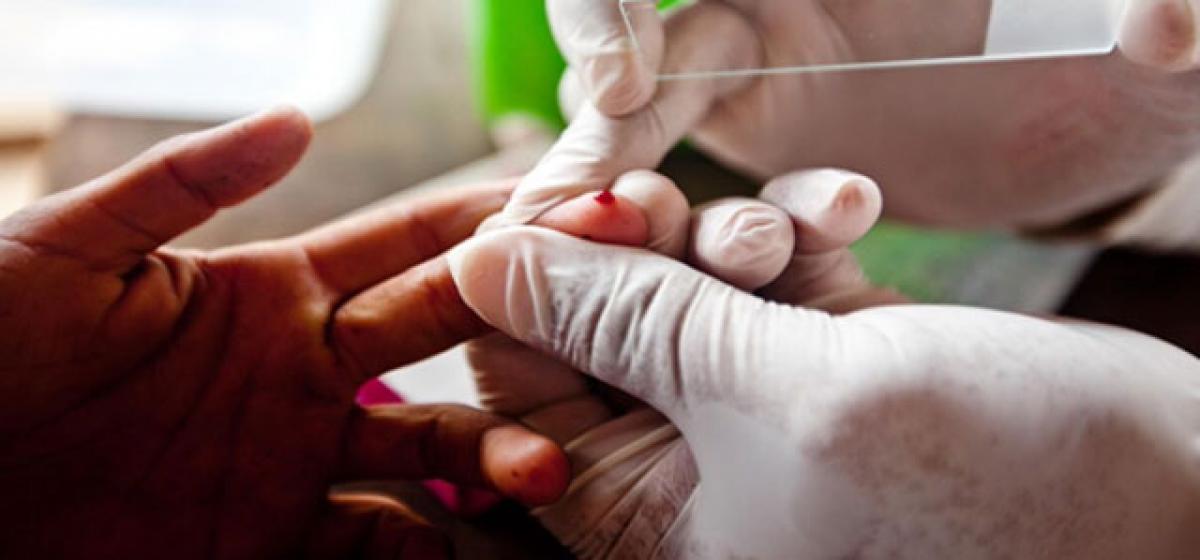Live
- CP congratulates chess champs
- Stage set for children’s science exhibition
- ‘Generation Green’ initiative to drive e-waste awareness
- Suspend officers who caned Panchamasali protesters: Bommai
- Unique move by student reaches over 1,500 in 8 countries
- Thudi takes up key issues with Uttam
- IRCTC to run ‘Maha Kumbh Punya Kshetra Yatra’
- BRS leader denies earthquake’s effect on Medigadda project
- 13th edition of ‘Hack AP Hackathon’ conducted
- Ayyappa devotees in thousands throng Yadagirigutta for Giri Pradakshina
Just In
Researchers develop rapid blood test for malaria diagnosis


Researchers have developed an automated rapid blood test that could make malaria diagnosis faster and more reliable than it is now. The new method enables the diagnosis of the disease with 97 per cent accuracy, Technical University of Munich (TUM) said in a statement.
Researchers have developed an automated rapid blood test that could make malaria diagnosis faster and more reliable than it is now. The new method enables the diagnosis of the disease with 97 per cent accuracy, Technical University of Munich (TUM) said in a statement.
According to the World Health Organization (WHO), malaria claimed the lives of approximately 430,000 people throughout the world in 2015.
A major problem associated with this infectious tropical disease is the difficulty in obtaining a fast and reliable diagnosis.
Up to now it was diagnosed mainly by means of the microscopic detection of pathogens in the blood by medical technicians a time-consuming method.
The new rapid test uses a combination of 30 different blood values that can be determined using an automated process. The method was developed by Professor Oliver Hayden from the Technical University of Munich (TUM) and Jan van den Boogaart from Siemens Healthineers, a medical technology company headquartered in Erlangen, Germany.
The researchers carried out a statistical evaluation of the blood parameters of healthy participants and malaria patients. Based on this they were able to identify a set of 30 blood values which presented quantifiable deviations from the norm in people suffering from the disease.
The two researchers then developed an algorithm that can be programmed into blood analysis devices already used in laboratories and clinics so that they recognise the malaria "data fingerprint".
For the development of the new method, the researchers were presented this week with the European Inventor Award, which honours outstanding inventors from Europe and the rest of the world. The researchers said they aim to develop the detection method further for use with other diseases in the future.

© 2024 Hyderabad Media House Limited/The Hans India. All rights reserved. Powered by hocalwire.com






